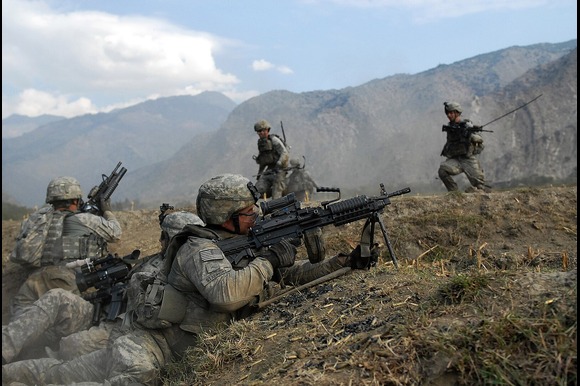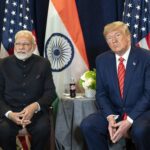Ubon Ratchathani, Thailand
As Thai and Cambodian officials engage in high-stakes border negotiations in Kuala Lumpur, reports from the ground indicate that both countries continue to amass troops along their disputed frontier, raising fears that renewed violence could erupt at any moment.
Malaysia brokered a fragile ceasefire on July 28, putting a temporary halt to five days of intense clashes between Cambodian and Thai forces. However, both sides have since accused each other of breaching the truce, even as their delegations participate in ongoing peace talks in the Malaysian capital. The summit, which began on Monday, is set to conclude on Thursday with a key meeting between Thai Deputy Defence Minister Natthaphon Nakpanit and Cambodian Defence Minister Tea Seiha. Observers from Malaysia, China, and the United States will also be present.
“The situation remains unstable; it could flare up again at any time,” warned Wasawat Puangpornsri, a Thai Member of Parliament representing Nam Yuen district in Ubon Ratchathani, which borders Cambodia.
On Tuesday, Wasawat visited the tense border area, reporting that Thai and Cambodian troops were stationed just 50 metres apart near the Chong Anma border crossing in Nam Yuen. The ongoing military presence on both sides has hindered efforts to repatriate approximately 20,000 displaced Thai citizens. These individuals were forced to flee their homes after hostilities erupted on July 24, following months of rising tension.
Wasawat and other Thai government officials toured the area to assess damage to civilian property and determine the scale of reparations. Many homes were destroyed or heavily damaged during the fighting. Locals remain on edge, especially after a deadly exchange of fire in May that killed a Cambodian soldier and further strained diplomatic relations between the two nations. Each side blamed the other for instigating both the May skirmish and the large-scale clashes in July, which saw Cambodian rockets hitting Thai villages and Thai warplanes bombing Cambodian territory.
One local resident, Phian Somsri, recalled the moment the bombardment began as she was tending to her ducks. Speaking from a Buddhist pagoda where she has been sheltering for over 10 days, she described the panic that set in after receiving a desperate phone call telling her to flee.
“I was preparing myself, but I never truly believed it would happen,” she said. “The bombs started landing in the rice fields.” One of the first casualties was her friend, known affectionately as Grandma Lao, who died when a rocket slammed into her home.
“I was in shock. I didn’t want to believe it,” Phian said tearfully. “I was scared — I could hear the gunfire and bombs all around, but I couldn’t do anything. I just pray that everything will be all right and peaceful again.”
The five-day conflict left at least 24 civilians dead — 16 in Thailand and eight in Cambodia — and forced more than 260,000 people to flee their homes on both sides of the border.
Although the ceasefire has held since July 28, mutual accusations of violations persist. Both governments continue to trade barbs, even as the General Border Committee meets this week in Kuala Lumpur in hopes of averting another confrontation.
Cambodia’s former leader Hun Sen warned on Sunday of a possible new Thai offensive, though no such attack has occurred. Despite officially transferring power to his son, Prime Minister Hun Manet, in 2023, Hun Sen is widely regarded as the nation’s de facto leader and principal decision-maker.
Meanwhile, in safer parts of Ubon Ratchathani far from the frontline, district officials report that many evacuees are still too frightened to return home due to the risk of renewed hostilities. One local official, speaking anonymously due to media restrictions, expressed deep skepticism about the Cambodian military.
“There is a serious lack of trust toward the Cambodian side,” he said, noting that many displaced residents remain traumatised by the recent violence.
Among them is Netagit, 46, a janitor from a village hospital. He was sheltering in a bomb-safe zone near a Buddhist temple when his house was destroyed by a rocket on July 25.
“I don’t know what comes next,” he told Al Jazeera, surveying the ruins of his former home. The remnants of his family’s life — clothing, furniture, and shattered walls once painted sky blue — lay scattered across the street. A torn-up corrugated roof was all that remained of what used to be their shelter.
Netagit had lived there with his wife, two children, and in-laws. He initially tried to shield his children from the loss.
“I didn’t want to tell them what had happened, but they saw the photos and just started crying,” he said. “Now I’m just trying to mentally prepare for whatever comes next.”
While the peace talks in Malaysia have raised some hopes, displaced villagers like Netagit and Phian remain gripped by anxiety. Continued reports of troop build-ups and diplomatic sparring have done little to ease their fears.
Phian’s husband was briefly allowed to return home last week to inspect their property, only to find that their ducks — once a modest source of income — had all died.
“I feel overwhelmed,” Phian said. “I just want to go home. I pray for peace between our two countries.”






